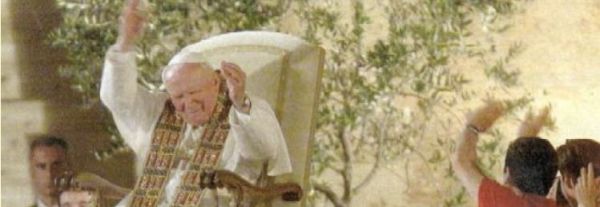6. "Two men went up to the temple to pray: one was a Pharisee and the other a publican" (Lk 18:10). However, only one returned home justified. And it was precisely the publican (cf. Lk 18:14). This means that only he reached the inner mystery of the temple, the mystery united to his consecration. Only he, although both had gone there to pray.
Thus it turns out that the same sacred space, the temple, the cathedral, must be further filled with another totally interior and spiritual space: "Do you not know that you are God's temple and that God's spirit dwells in you?" - writes St Paul (1 Cor 3:16).
In fact, your cathedral, like so many others in the world, is filled with an almost infinite number of those inner temples, which are the human 'hearts'. To whom do these human 'hearts' most resemble? The Pharisee or the publican? The temple is a sign of man's reconciliation with God in Jesus Christ. However, the reality of this reconciliation - which is indicated by the external sign of the temple - ultimately passes through the human heart, through this sanctuary of justification and holiness.
7. The Pharisee returned "unjustified" because he was "full of himself". In the "space" of his heart there was no room for God. The Pharisee was present in the material temple; but God was not present in the temple of his heart. Why, on the other hand, is the publican "justified" again? Because - unlike the Pharisee - he humbly acknowledges that he needs to be justified. He does not judge others. He judges himself.
The publican 'stands at a distance', yet - and perhaps he does not exactly realise it - he is closer than ever to the Lord, because 'the Lord, as the Psalm says (33:19), is close to the one whose heart is wounded'. God is by no means distant from the sinner, if this sinner has a 'wounded heart', i.e. is repentant, and trusts, like the publican, in divine mercy: 'O God, have mercy on me a sinner'. The publican, therefore, does not glory in himself, but in the Lord. He does not exalt himself. He does not put himself first, but recognises in God his majesty, his transcendence. He knows that God is great and merciful, and that he bends to the cry of the poor and humble.
The publican "stands at a distance", but at the same time he trusts. Here is the right attitude towards God. To feel unworthy of him, because of one's sins; but to trust in his mercy, precisely because he loves the repentant sinner.
[Pope John Paul II, homily Perugia 26 October 1986]












